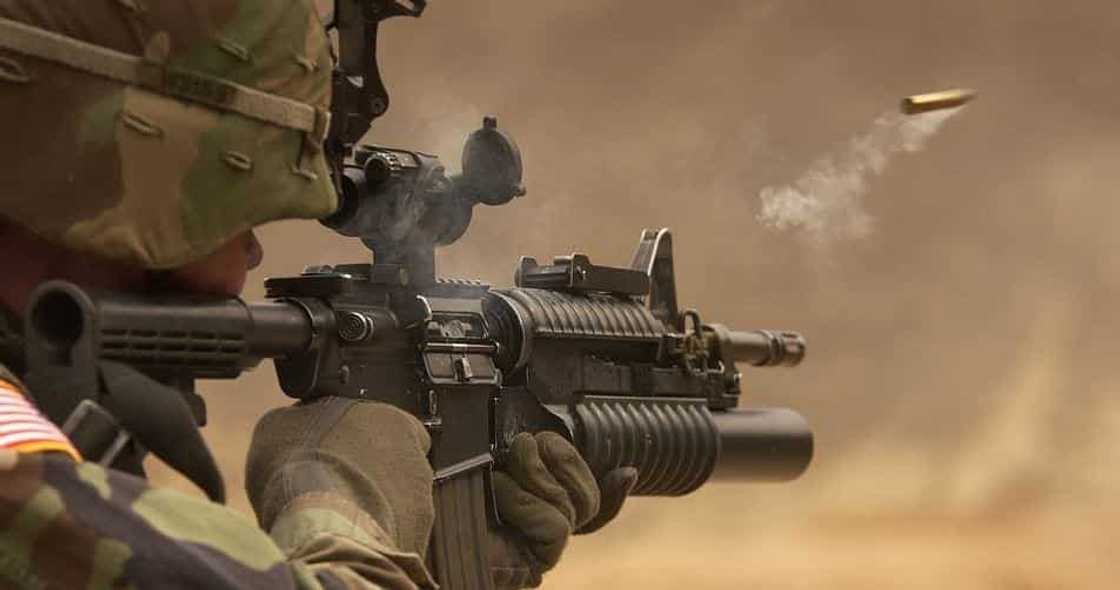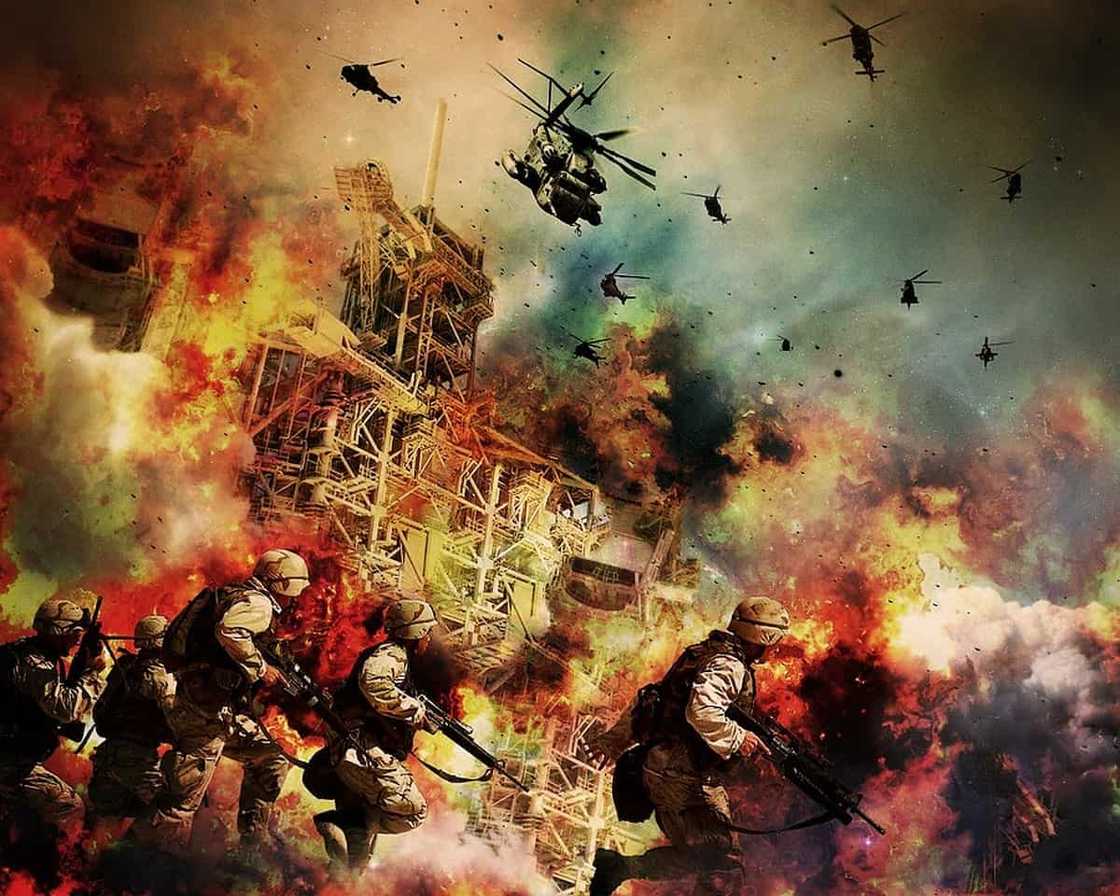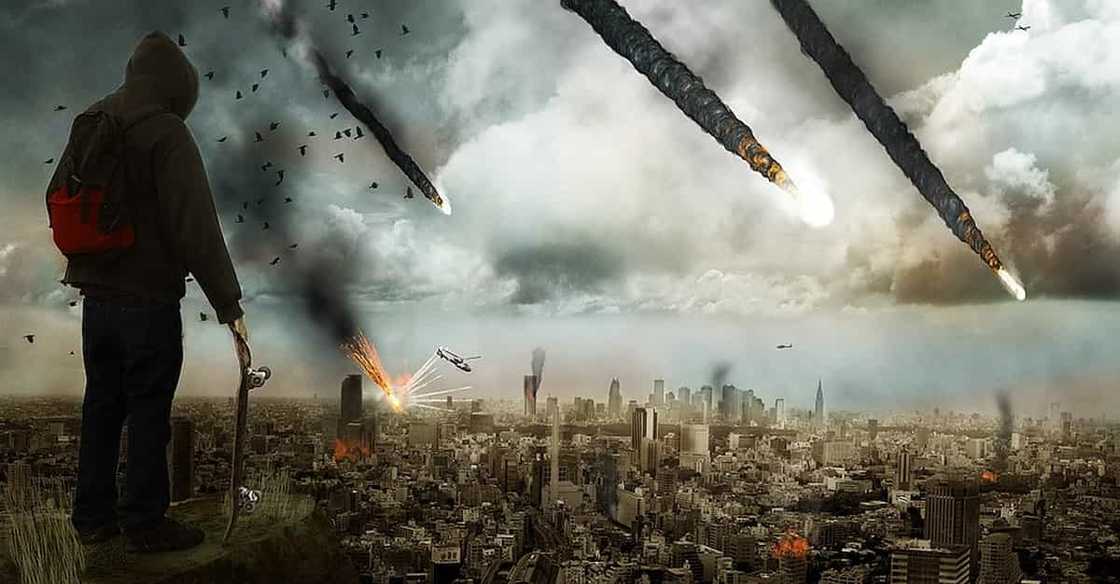World war 3 in 2020: real threat or myth?
World War 3 is about to begin, the world's media began to tell us more often since early 2020. Just two months into the new year, the Doomsday Clock, which counts down to the global conflict that will happen at midnight, showed 23 hours, 58 minutes and 20 seconds. It is the closest the project has come to catastrophe in the more than 70 years it has been implemented. Let's discuss more whether one should be afraid of a worldwide conflict.

Source: UGC
When asked: 'Will World War III happen?' Google gives out 21 million options and searches: 'Will war happen?' £135 million. Earlier this year, the hashtag # WWIII (World War 3) was trending on Twitter.
Conspiracy theorists argue that the war has been going on for years. Let's try to figure out:
How did the term "World War III" appear?
"World War III" was coined to refer to the global armed conflict that follows World War II.
Surprisingly, it appeared in November 1941, in the midst of World War II. He was used by Time magazine to tell the story of Hermann Rauschenberg, who fled Nazi Germany to the US.
The second time the term appeared in the magazine was in 1943. He also featured in the publication's materials for five years in a row.
How World War III will play out: predictions and plans
After World War I, the popular slogan was "Never again." The global community truly believed that global conflicts should not be repeated. A special body, the League of Nations, has been established to prevent them.
But World War I generated contradictions that led to another conflict 21 years later. During the entire interwar period, the general staffs of major states made plans for another war. After World War II, mankind created the United Nations, a new international body with an improved internal structure, which aimed to prevent contradictions among the countries of the world.
But the military of the world's leading powers continued to prepare for another war. As time passes, the plans are declassified, revealing how the war might have gone. The first plan of World War III had been drawn up by the British military on Winston Churchill's orders as early as the spring of 1945. He was concerned about the Soviet Union's growing influence in Europe.
The plan was dubbed "Operation Unthinkable" and was developed in two versions: offensive and defensive. It envisaged a clash between the Anglo-American coalition and the USSR. The British government declassified the details in the early 1990s.
As is well known, Churchill, a fierce opponent of communism, gave a famous speech in Fulton in the spring of 1946, which launched the Cold War.
In 1949, the Americans developed a Dropshot plan. It envisioned a global confrontation of the Western world with the USSR and its satellites. The plan's developers assumed that having established themselves in Eastern Europe, the USSR would invade Western Europe. The plan called for retaliatory nuclear weapons.
In the 1950s and 1970s, NATO countries conducted exercises to work out potential scenarios of global conflict with the Soviet Union and its allies.
In 1983, US President Ronald Reagan announced the Strategic Defense Initiative. It was unofficially called "Star Wars," and involved deploying a system of satellites in space that would have destroyed Soviet missiles if World War 3 had broken out.
A few years later, American experts concluded that the state of technology did not allow the program to be implemented. For this reason, it was rolled back, but with side impacts.
Some historians believe that Star Wars helped the US win the Cold War. The USSR, designing countermeasures, was drawn into a new round of military-technological confrontation that its economy could not survive.

Source: UGC
World War III: the events that could have brought it about
In the midst of the Cold War, the world waited in terror for World War III to break out. Historians have called a series of events that occurred between the 1950-70's particularly dangerous and believe that they could have brought the world closer to a new global conflict.
The first major conflict since World War II was the 1950-53 Korean War. The struggle for control of the Korean Peninsula has pitted the Soviet Union and China on the one hand, and the United States against its allies on the other. The United Nations was on the latter side. Troops of the USSR and its allies fought with UN troops. Communist countries set themselves against the rest of the world. CBS war correspondent William Downes wrote in his 1951 account of events on the Korean peninsula that World War III had broken out.
Then, the Berlin (1961) and Cuban (1962) crises, the confrontation of the Soviet Union with China in 1969, the Indo-Pakistan (1971) and Arab-Israeli conflicts (1973), when the Soviet Union and the United States actively supported the belligerents, and the Pristina airport incident of 1999, when Russian troops took up positions and NATO troops received orders to destroy them, may have turned into global catastrophe.
In 1979 and 1983, war could have started because of a breakdown in the control systems of American and Soviet nuclear missiles.
In the twenty-first century, the so-called Korean crisis (2017-2018) and the Iranian crisis of 2019 could lead to World War III. A 2020 war could in theory start because of the Syrian standoff.
Conspiracy theories and the outbreak of World War III
There is an extended interpretation of the term "World War III", which is used by supporters of conspiracy theories. According to this approach, war has been raging for a long time, but it has become different to global armed conflict in the modern world.
Here are the main ones:
- The War on Terror.
For example, following the events of September 11, 2001, several analysts stated that World War III had begun, not between states, but as the civilized world's opposition to organized terrorism.
- The war against globalism.
Subcomandante Marcos (Galeano), leader of the radical left movement in Mexico, offered his version of the term. He argues that World War III is over because it took place in the form of the Cold War. In Marcos' view, World War IV is now taking place. And it is a conflict with globalism and neoliberalism.
- War on individual states.
In some countries, politicians and philosophers argue that World War III was waged against their state. In Russia, for example, in March 2018, the channel "Zvezda" aired "The Conspiracy Theory" which gathered analysts who argued that the West was waging war against their country and it would become World War III.
In early 2019, State Duma Deputy Natalia Poklonskaya declared that World War III had long begun. It takes the form of local conflicts and economic sanctions, and its victim is Russia.

Source: UGC
Conspiracy theories aside, World War III remains a hypothetical conflict. Rising tension in the world is increasingly raising the question of whether a global military conflict is real or not.
It is to be hoped that the new world war will remain hypothetical and that humanity will not plunge into a precipice of madness.
Source: KAMI.com.gh







